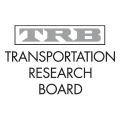Forecasting Weekend Travel Demand Using an Activity-Based Model System
Corresponding Author: Joe Castiglione, San Francisco County Transportation Authority
Presented By: Bhargava Sana, San Francisco County Transportation Authority
Abstract
Treasure Island and Yerba Buena Island, located in the middle of the San Francisco Bay, will become home to at least 20,000 residents by 2035 and will also include retail, office/commercial, and public space uses. Providing access to the island, which is connected to the rest of the Bay Area by only the San Francisco-Oakland Bay Bridge, raises critical questions about minimizing traffic impacts on the San Francisco-Oakland Bay Bridge, and finding sources of committed, permanent funding to operate and maintain new transit and other transportation services.
Developing a comprehensive solution to managing these operational and financial challenges requires consideration of weekend as well as weekday travel demand reflecting the mix of weekend island activities as well as regional weekend travel demand. However, like most travel models, the existing SF-CHAMP activity-based travel demand forecasting model did not consider weekend travel, and the available household travel surveys included only limited weekend data. To provide the information required to support weekend traffic impact analyses and generate revenue forecasts, the SFCTA’s consultant team adapted the SF-CHAMP model to provide estimates of weekend demand by implementing a procedure in which weekday activities are re-sampled to match weekend travel patterns. Subsequent model components such as mode choice and time-of-day choice were recalibrated to match weekend distributions. Observed weekend traffic and transit data were used to further refine the calibration targets, and all components were evaluated to assess the overall weekend calibration and validation of the entire model system. The approach was implemented quickly because it avoided the challenges of re-estimating weekend demand models with limited data and the potential need to rewrite model application code, while still providing the full range of disaggregate activity-based model outputs which support detailed analyses, such as assessment of the equity impacts of tolling on both existing as well as new island residents.
This presentation will describe the re-sampling process, including alternative sampling methods that were tested, summarize the weekend data required to implement the method, and demonstrate the model calibration, application, and validation results.

